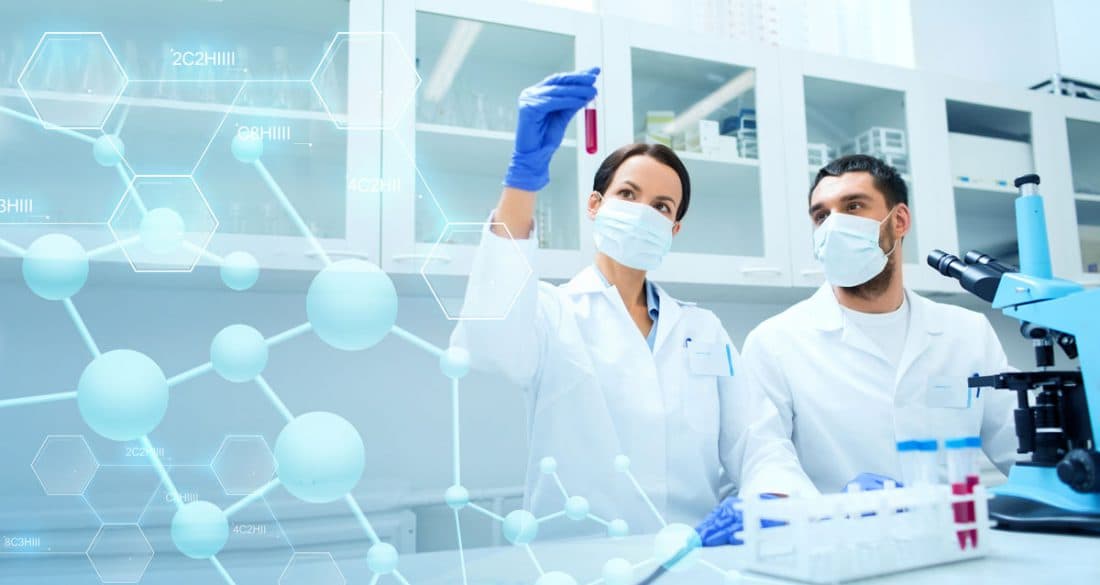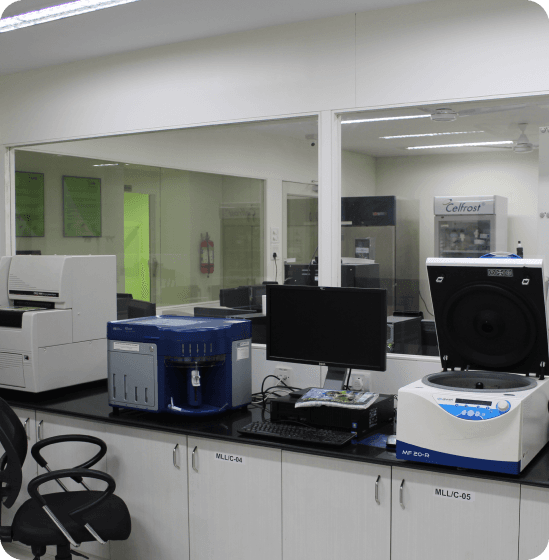About NFB
Learn more about us, our vision and the team who helps us to achieve it.
Overview
Despite the proven linearity of growth in the biotech sector and very high future potential, an area that requires attention is a Human Resource Development Facility for creating human resources specifically skilled in Biotech industry oriented molecular biology, bioprocess technology and bioanalytical sciences. Although there are more than 350 academic institutions in India teaching life sciences and biotechnology, the question often raised by the industry is how employable is this talent pool.
In light of this, we have established a National Facility for Biopharmaceuticals which will specifically address the human resource development. The Facility is designed and constructed strictly with international standards required for developing and manufacturing of recombinant Biopharmaceutical product. It would have GLP certification and ISO certifications required for the services it proposes to provide. The Facility has space and facilities for each student to excel in the area of Biotechnology / Bioprocess with hands on experience. The Facility would provide “third-party” evaluations of technology, products, processes and human resource in this highly competitive and sensitive field.
Our Vision & Mission Statement
The 1st of its kind in India, committed to "Hands-On" training on various aspects of Biopharma industry with specialization in Molecular Biology, Protein Purification, Fermentation and Mammalian tissue culture techniques.
Vision - To transform Education into Expertise in a sustainable manner by providing best-in-class facilities, infrastructure and training to students, teachers and professionals; thereby empowering them to maximize their true potential.
Mission - The Mission of National Facility for Biopharmaceuticals (NFB) is to be the best of its kind in providing hands on training in the field of Biopharmaceuticals in India. NFB is focused on bridging the gap between academics and industry in order to produce holistic experts for industrial environment, teaching and research.

Our Team

Infrastructure
We have Instrumentation and lab facilities that caters undoubtedly to the research interests in "Microbiology, Fermentation, Molecular Biology, Proteomics, Bioanalytical analysis and Mammalian Tissue Culture"
A molecular biology lab is a specialized facility that is designed to study the structure and function of nucleic acids, including DNA and RNA, on a molecular level. The infrastructure of a molecular biology lab is designed to provide a clean, controlled environment that allows for the accurate and precise analysis of nucleic acids. This infrastructure is essential for ensuring the quality of the data generated by the lab and for advancing our understanding of the genetic basis of diseases and other biological phenomena.
A proteomics lab is a specialized facility that is designed to study the production and purification of proteins on a large scale. The infrastructure of a proteomics lab is designed to provide a clean, controlled environment that allows for the accurate and precise analysis of proteins. This infrastructure is essential for ensuring the quality of the data generated by the lab and for advancing our understanding of protein structure and function in health and disease.
The infrastructure of a microbiology lab is designed to provide a clean, controlled environment that allows for the accurate and precise analysis of microorganisms. This infrastructure is essential for ensuring the quality of the data generated by the lab and for advancing our understanding of the role of microorganisms in health and disease.
A fermentation lab is a specialized facility that is designed to study the process of fermentation, which involves the conversion of organic compounds into other useful products by microorganisms such as bacteria, yeast, and fungi. The infrastructure of a fermentation lab is designed to provide a clean, controlled environment that allows for the accurate and precise analysis of the fermentation process and the products generated. This infrastructure is essential for ensuring the quality of the data generated by the lab and for advancing our understanding of the applications of fermentation in various industries, such as biotechnology, food, and pharmaceuticals.
A cell culture lab is a specialized facility that is designed to provide a controlled environment for the growth and maintenance of cell cultures. The infrastructure of a cell culture lab is designed to provide a clean, sterile environment that allows for the controlled growth and maintenance of cell cultures. This infrastructure is essential for ensuring the accuracy and reproducibility of experimental results and for maintaining the quality of the cell lines used in research and biotechnology.
A common instrumentation lab bioanalytical instrumentation lab is a facility equipped with specialized instruments used to analyze biological samples. These labs typically focus on the quantitative and qualitative analysis of biomolecules like proteins, nucleic acids, metabolites, and more. Instruments commonly found in such labs include spectrophotometers, chromatographs (HPLC), mass spectrometers, DNA sequencers, and fluorescence microscopes. Researchers in these labs conduct experiments to understand biomolecular composition, structure, and function, which can have applications in fields like medicine, biotechnology, and environmental science.
